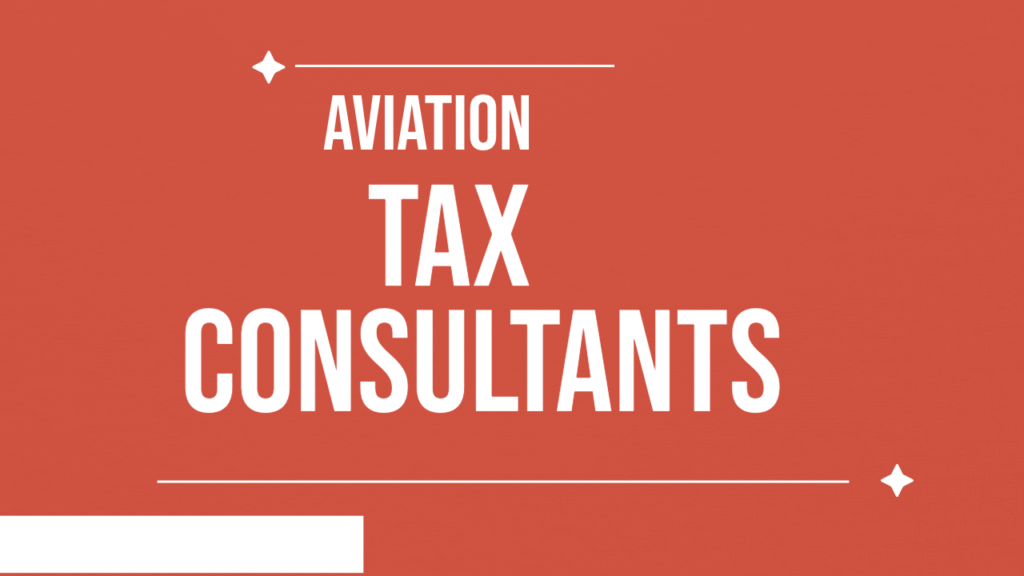The aviation industry operates in a unique and challenging environment, where taxation plays a critical role in shaping its financial health. Aviation tax consultants are experts who specialize in helping businesses in the aviation sector navigate the complex web of tax regulations, ensuring compliance, minimizing liabilities, and optimizing financial outcomes.
In this article, we’ll explore the role of aviation tax consultants, their services, the challenges they address, and how AI-powered tools like WebsiteBuilder.ai can support their business operations.
The Role of Aviation Tax Consultants
Aviation tax consultants are financial and legal experts dedicated to the unique tax needs of aviation businesses. Their work spans airlines, charter operators, airports, aircraft leasing companies, and private aircraft owners. Their core responsibilities include:
1. Tax Compliance
The aviation industry is governed by a mix of international, national, and regional tax regulations. Tax consultants ensure businesses adhere to these regulations, avoiding penalties and legal complications.
2. Tax Optimization
Consultants analyze financial structures and operations to identify areas for tax savings. This involves advising on depreciation strategies, leasing arrangements, and tax credits.
3. Customs and Duties
For businesses engaged in cross-border operations, tax consultants help navigate customs duties, import/export taxes, and VAT implications.
4. Advisory on Fuel and Environmental Taxes
With sustainability becoming a global priority, governments impose fuel and environmental taxes on aviation businesses. Tax consultants guide businesses on compliance while identifying ways to mitigate costs.
5. Transaction Support
During aircraft acquisitions, sales, or leases, aviation tax consultants provide essential insights into tax implications, helping clients make informed decisions.
Challenges in Aviation Taxation
The taxation landscape in aviation is intricate, with unique challenges such as:
- Frequent Changes in Tax Laws: Aviation businesses must adapt to ever-evolving tax regulations across different jurisdictions.
- Cross-Border Operations: Tax consultants need to manage the complexities of international taxation, including double taxation treaties.
- Environmental Taxation: Increasing environmental taxes requires strategic planning to balance compliance with profitability.
- Industry-Specific Regulations: Aviation taxation involves specific considerations like airport taxes, overflight fees, and passenger taxes, which require specialized knowledge.
Why Aviation Taxation Expertise is Essential
Aviation tax consultants not only ensure compliance but also offer significant financial advantages, such as:
- Cost Savings: Strategic tax planning minimizes liabilities and enhances profitability.
- Risk Mitigation: Proactive compliance avoids penalties and reputational damage.
- Operational Efficiency: With tax consultants managing the complexities, aviation businesses can focus on their core operations.
- Tailored Strategies: Aviation tax consultants provide customized solutions based on the unique needs of their clients.
The Growing Role of Technology in Aviation Tax Consulting
Technology is revolutionizing the tax consulting industry, and aviation tax consultants are no exception. By adopting advanced tools and systems, consultants can enhance their efficiency and accuracy.
AI in Tax Consulting
Artificial intelligence plays a pivotal role in automating and streamlining tax-related processes. AI-powered tools can:
- Analyze Complex Data: AI processes large datasets quickly, identifying trends and anomalies that impact tax calculations.
- Automate Compliance Checks: AI ensures businesses adhere to tax regulations, minimizing human errors.
- Enhance Decision-Making: Predictive analytics helps consultants anticipate changes in tax laws and prepare clients accordingly.
Building a Digital Presence for Aviation Tax Consultants
In today’s digital age, aviation tax consultants must maintain a strong online presence to attract and retain clients. A professional website serves as a hub for showcasing expertise, services, and industry insights.
Key features of an effective website for aviation tax consultants include:
- Service Overview: Clearly highlight services like tax compliance, VAT advisory, and transaction support.
- Educational Content: Publish blogs, guides, and case studies to demonstrate expertise.
- User-Friendly Navigation: Ensure the website is intuitive and accessible on all devices.
- SEO Optimization: Implement SEO strategies to rank higher on search engines, making it easier for potential clients to find you.
Conclusion
Aviation tax consultants are indispensable in managing the intricate tax challenges faced by the aviation industry. Their expertise ensures businesses remain compliant, optimize tax liabilities, and achieve financial efficiency in a highly competitive sector.
To maximize their reach and operational efficiency, aviation tax consultants can leverage tools like WebsiteBuilder.ai. This AI-powered website builder empowers consultants to create professional, visually appealing, and fully functional websites with ease. With customizable templates and advanced features, WebsiteBuilder.ai ensures consultants can focus on delivering exceptional services while maintaining a robust digital presence.
By blending industry expertise with cutting-edge technology, aviation tax consultants can continue to thrive in an evolving landscape, delivering unparalleled value to their clients.
